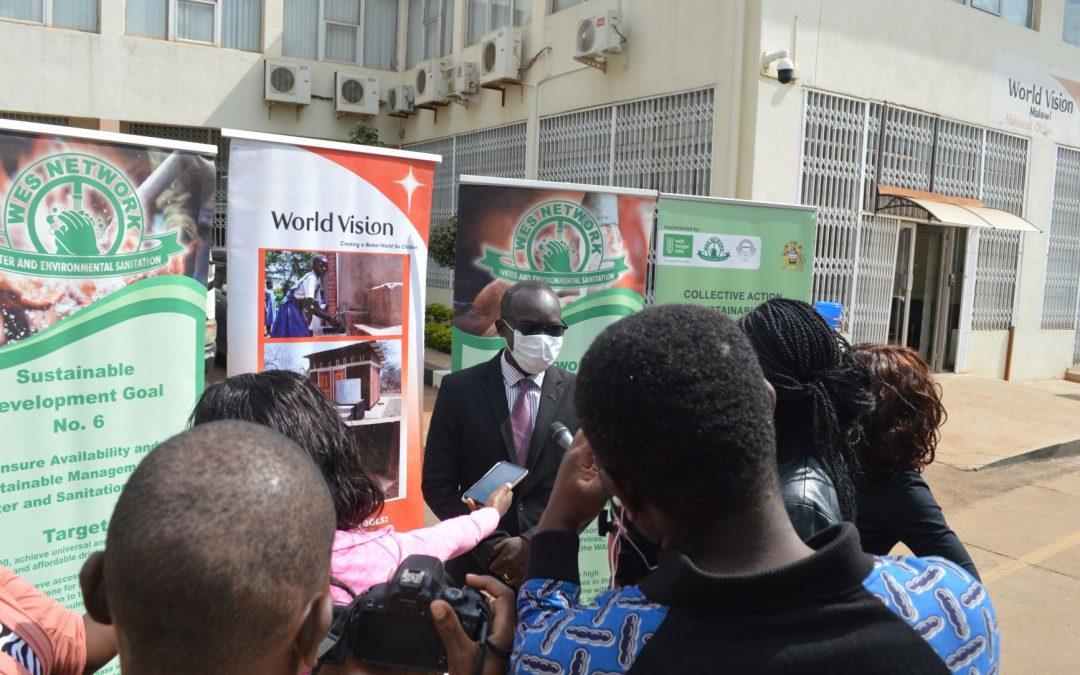The COVID-19 pandemic has highlighted how many people across the globe lack the most critical first line of defence to this pandemic- the access to water, sanitation and hygiene (WASH) service. The civil society partners of SWA in Uganda, Malawi and Bangladesh are leaving no stone unturned to advocate the line ministries and parliamentarians for increased funding and financing for the sector.
With the support of its partners, Uganda Water and Sanitation NGO Network (UWASNET) developed a mini advocacy documentary film to call on the Ministry of Finance, Planning and Economic Development and the Uganda Parliament to prioritize WASH in the national budget. This documentary ran on 9 pm primetime news on NBSTV every Tuesday and Thursday. Subsequently, UWASNET organized a panel-based advocacy dialogue calling for the prioritization of WASH in the national planning and budgeting. The webinar included panellists such as the Permanent Secretary, Ministry of Water and Environment (MWE), the Chair of Budget Committee in Parliament of Uganda and also provided space for the different stakeholders to define their areas of demand and support to the other sector partners.
In Malawi, the Water and Environmental Sanitation Network (WES Network), an umbrella network of civil society organizations had submitted a position paper on recommendations to 2020-21 National Budget. Their key recommendations include:
- Increase national budget allocation to WASH from an average of 1% over the past 3-5 years towards a minimum threshold of 5% of the total national budget. This is in keeping with Malawi’s Water Sector Investment Plan (WSIP) 2012 allocation estimates, the SDG costing tool projections & numerous commitments & declarations that Malawi is a party to, such as those under the global Sanitation & Water for All partnership.
- Allocate funds in the national budget for the development of comprehensive institutional WASH guidelines are developed to allow a safe return to normal in the post-COVID-19 pandemic period.
- WASH should be included in the financing of social safety nets because it follows that households that cannot afford soap, cannot protect themselves against the threat of COVID-19. As such, social cash transfers should factor hygiene supplies & water as crucial components.
- In distributing resources to votes, programs & outputs, Malawi should prioritize & increase preventative expenditure over curative expenditure for preventable diseases.
- In distributing resources to votes, programs & outputs, Malawi should ensure the national budget provides for sustainable financing of operation & maintenance costs for water sanitation & hygiene infrastructure in health care facilities, early childhood development centres, markets, bus depots & educational establishments.
- Bearing in mind the effect of COVID 19 on the Malawi economy, it is expected that the 2020/2021 national budget will seek to finance economic recovery activities. If such will be the case, priority should be given to social & economic infrastructure that, first, respond to addressing effects of the COVID 19 pandemic – such as WASH-related infrastructure and, second, prove to have positive economy-wide effects of large magnitude.
- Since good hygiene & clean water are the first line of defence against COVID-19 & other highly contagious diseases, the tax measures for the 2019-2020 fiscal year should include removal of VAT on hygiene & infection prevention supplies such as soap, chlorine & handwashing buckets.
After the budget release, WESNET published a statement, “the Malawi government acknowledged through the national budget statement that various requests for VAT exemptions which couldn’t be implemented in the 2020-2021 national budget will be considered in subsequent national budgets. This follows WESNET’s recommendations to remove VAT on WASH facilities which include sanitary pads and water points among others. As a network, we are happy and commend the government for such an effort. However, there is still more. We need an increase in funding. 1% is far from not being enough. The WASH sector is one of the sectors that when little attention is put the economy dwindles.”

In Bangladesh, the SWA Civil Society partners are amplifying the voice of civil society in the national television debates asking for an increased WASH budget in the current fiscal year. During the TV debate, the SWA CSO Steering Committee Representative, Zobair Hassan, who is also an expert in participatory budgeting said, “Due to the pandemic, this year the government did not get a chance to consult during the budgeting process, however, the CSOs and other stakeholders are trying to reach government and mobilize them for need-based allocation for WASH”. In the recent study by International Budget Partnership (IBP), Bangladesh has scored 36 in 2019 in comparison to 41 out of 100 (in 2017) for issues of transparency for budgeting which has also been raised by the CSOs during the live TV debates.
